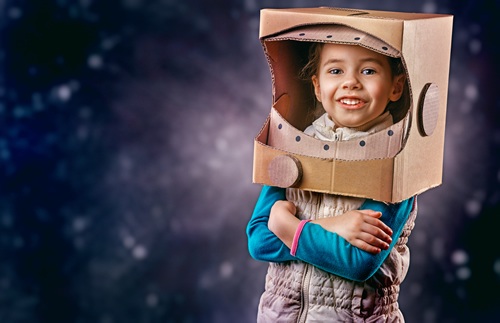More parents would focus on science-related activities with their young children if they knew how to actually engage in such activities, according to a new survey.
The survey from Education Development Center (EDC) and SRI International includes data from more than 1,400 parents of young children ages 3 to 6—many of whom (63 percent) are from low-income households.
One of the biggest takeaways from the results? Science for young children doesn’t have to involve expensive devices or equipment—it can be as simple as encouraging inquiry, curiosity, and asking “Why?” with young children.
Many of the surveyed parents said they believe it is important to encourage learning at home, and most said they feel comfortable helping their young children with reading and math. But a smaller number said they are comfortable with science learning.
That reluctance is a cause for concern, because although early learning around reading and math has garnered top priority, science has not, despite its ability to help students develop many essential soft skills they’ll need after high school, such as problem solving and critical thinking.
(Next page: 5 takeaways for early science learning)
Science achievement gaps exist as early as kindergarten, and they are persistent—limited STEM exposure early on can lead to disinterest in STEM in later grades. But by reinforcing science learning at an early age, parents can help their children view science not as a jumble of microscopes and lab coats, but as a way to ask important questions about why things work the way they do.
Seven of 10 parents say knowing what young children need to learn about science, and having ideas for doing science with everyday materials, would help them do a lot more science.
Nearly all surveyed parents say they do daily learning activities with their children, but only about half do daily science-related activities.
Parents also say they would welcome ideas and activities that encourage science learning, such as incorporating science into daily activities like cooking or gardening; watching and talking about science videos together; playing and talking about digital science apps or games together; or having chats that ask and find answers to children’s questions about their environment.
“This is accessible. Being in sand, being in water, feeling bark on trees—a lot of science at this age is very tactile,” says Shelley Pasnik, EDC vice president and director of the Center for Children and Technology. “It doesn’t require heavy equipment.”
Many families say they use science media weekly or more—particularly videos or TV shows about science—but few parents think these media resources have helped their children learn a lot of science.
The survey also offers five key takeaways for educators and media producers when it comes to helping young children and parents engage in science learning together:
1. Parents don’t have to know the “right answer” to help their children learn science. Parents can build on children’s natural curiosity by asking questions and looking for answers together.
2. Science exploration can start with wondering aloud. It can be reinforced with materials tailor-made for families. Parents need ideas about how to do science in ways that easily integrate with their routines and that don’t require special materials or lots of time.
3. Science is for home, school, and all the places in between. Preschools, schools, and teachers must emphasize that science is critical for the early years, both in early education settings as well as at home.
4. Science is watchable, readable, playable, and doable. Media producers can engage families by developing resources for both parents and children that include clear, high-quality, developmentally appropriate science content that models ways to engage with science concepts, practices, and activities.
5. Science learning should be accessible to all. It is imperative for educators and media producers to lower the barriers that parents face in helping their children learn science.
“Parents said they worry they don’t have the informational answers, and that can leave them reticent to want to engage in science, rather than thinking about science as a set of practices,” says Pasnik. “What is science as it relates to my young child? Science activities can be as simple as making observations about the world. What floats and what sinks? The misconception is that science is equipment-heavy or expensive. For preschoolers, everywhere is a science lab.”
- Friday 5: Universal Design for Learning - April 19, 2024
- Educators love their edtech, but want more training - April 18, 2024
- Friday 5: College and career readiness - April 12, 2024


